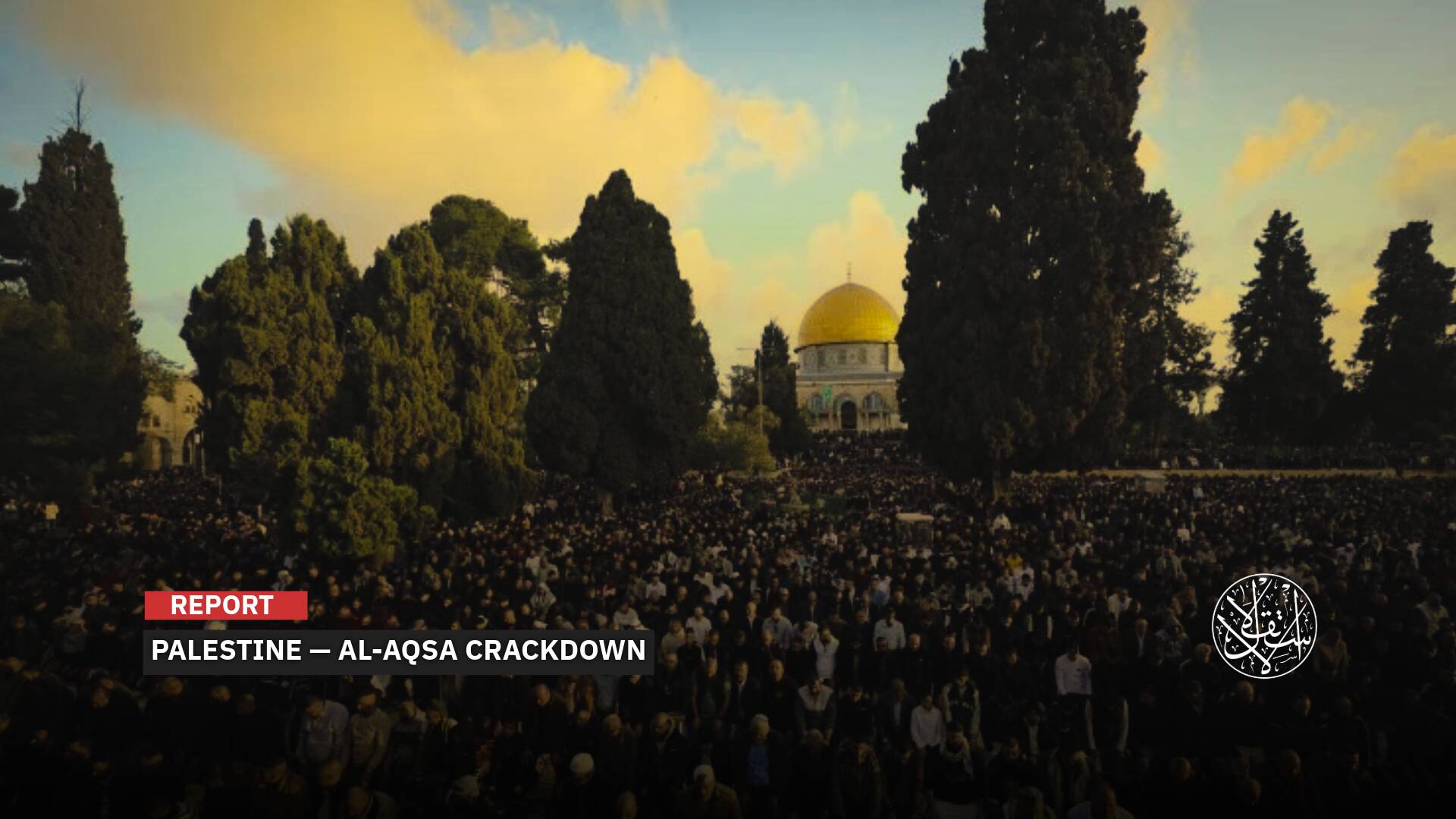Hebrew Website: Dahlan Will Not Return to Fatah Before the Political End of Abbas

Sources in the Palestinian National Liberation Movement (Fatah) said reconciliation contacts between Palestinian Authority President Mahmoud Abbas and his political rival Mohammed Dahlan had failed.
According to Hebrew media, Dahlan, who is separated from the movement, will not be able to return to Fatah before Abbas leaves the political scene.
The Hebrew security website “Time of Israel” noted that Dahlan is doing business and working as an advisor to Abu Dhabi Crown Prince Mohammed bin Zayed.
A Complex Case
In recent days, there have been reports in the Palestinian territories of contacts for Mohammed Dahlan's return to Fatah and reconciliation with Abbas.
Lebanon's Al-Akhbar newspaper said in a July 27 report that Dahlan's return to Fatah is expected after lengthy negotiations in Jordan.
Dahlan was expelled from Fatah in 2013 after disagreements with Abbas, the former establishing his own political movement known as the "reformist current" in the same movement and moved to Abu Dhabi.
The Hebrew website noted that Mohammed Dahlan had asked to join Palestinian factions' talks in Cairo with Egyptian intelligence, but the head of the Palestinian Authority refused.
Egypt and the UAE have proposed to Mohammed Dahlan the formation of a new political party called The Future, but his supporters in the "reformist movement" in the Gaza Strip rejected the idea, saying it would weaken their support on the ground.

Ashraf Juma, a member of the legislative council close to Mohammed Dahlan, posted a post on his Facebook page in July stating that the issue of reconciliation between Dahlan and Abbas was once again on the agenda.
Al-Rai al-Youm newspaper reported on July 30 that a member of Fatah's Central Committee, Abbas Zaki, visited the Al-Amari refugee camp near Ramallah, a stronghold of Mohammed Dahlan, and met with Jihad Tamila, the main representative of fatah's dismissed leader in the camp.
The Hebrew website pointed out that the issue of reconciliation between the two men is very complex, as the head of the Egyptian regime "Abdel Fattah el-Sisi" previously tried to reconcile them but failed because there was personal hostility in all attempts.
"There are bitter and difficult points between them, culminating in a serious exchange of accusations when each side blames the other for the death of former Palestinian leader Yasser Arafat."
Fatah's entire leadership opposes Mohammed Dahlan's return to the movement, and it is no secret that he aspires to become Mahmoud Abbas' successor.
Opposition in ‘Fatah’
The two key deputies of Fatah’s leadership, Hussein al-Sheikh and Majid Faraj, who are very close to Abbas, and Jibril Rajoub and Mahmoud al-Aloul, are strongly opposed to Mohammed Dahlan's return to the movement, said Yoni Ben Menachem, a security and political analyst at the site.
They also put pressure on Mahmoud Abbas not to bow to mediators.
Abbas recently resumed paying the salaries of dozens of Fatah activists from the movement's "reformist movement" in the Gaza Strip.
Abbas is trying to consolidate Fatah's position on the Palestinian street as the Islamic resistance movement Hamas grows stronger in the West Bank and popular anger over his decision to cancel the elections.
Sources in Fatah's leadership say Abbas is ready to consider returning reformist activists to the group's ranks, but the door is closed to Mohammed Dahlan and will remain outside the movement.
Dahlan is accused of murder and misappropriation of funds and must surrender to the Palestinian Authority and be tried by a Palestinian court, the sources said.
Fatah spokesman Hussein Hamayel said at the end of July that the case of Mohammed Dahlan is behind us and despite all the rumors there will be no reconciliation with him because this is the decision of the Palestinian people and members of the movement's central committee.
The movement's sources continue that any reconciliation with Mohammed Dahlan will not be as long as Mahmoud Abbas is at the forefront of the political arena.
Regardless of their personal hatred, Dahlan belongs to the United Arab Emirates, which has strained relations with the Palestinian Authority because of the Gulf state's proximity to Israel and the normalization agreement with it.
"Dahlan will continue to build his business empire in Abu Dhabi," said political analyst Ibn Menachem.
"The large sums of money he makes in the UAE from his arms trade, which pumps a lot of money into him and sends him to his supporters in the Gaza Strip and to his strongholds in refugee camps in the West Bank, is to strengthen his political position before the battle for the caliphate."











